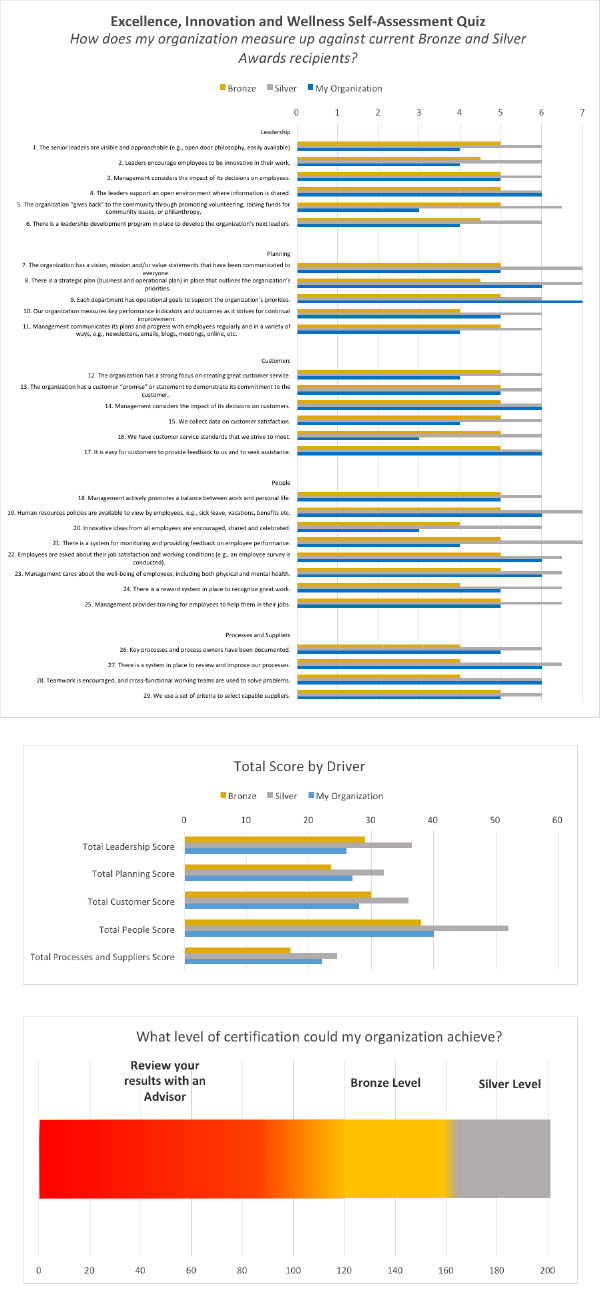Written by: Allan N. Ebedes
We have heard all the adjectives describing this Covid-19 crisis: “Unprecedented times, extraordinary and crazy times, the world in chaos, once in a 100 years pandemic, etc.”
We have also developed new vocabulary, tools and ways of living: Social and physical distancing, sheltering in place, flattening or planking the curve, facial-masks and hand sanitizer, virtual meetings and video chats over the internet using apps such as Zoom, MS Teams, WhatsApp, FaceTime, Skype; using cloud-based technology. Working from home becomes the new normal: home schooling; online learning, education and webinars on Zoom, WebEx and Go-To Meeting; digital health tools, technologies and telemedicine; shopping online for groceries using services such as Insta-Cart, Grocery Gateway and other supermarket delivery services; Amazon for everything; the surge in restaurant delivery services like Uber Eats, Skip-The-Dishes, and Door-Dash; the collapse of the oil market to the lowest prices ever, into a negative price where producers are actually paying buyers to take their oil; the stock market melt-down and volatility; shutting down the economy leading to a recession and a possible depression!
Given all this change and chaos, what strategies can we use to help us get through this crisis?
I suggest, tongue-in-cheek, that there are several “F’ing” strategies! In fact, there are 10 “F’ing” strategies, so-called because they all begin with the letter “F”.
These strategies are all common sense and readily available to all of us and don’t cost anything. They are grouped into 5 areas of life:
- Family and Friends
- Fitness and Fun
- Finances and Fortune
- Focus and Fulfillment
- Faith and Fellowship

Family and Friends
We would all love to get together in person with our family and friends, and we would love to hug our kids and grand kids, have meals and good times together. However, we need to listen to science and the healthcare experts who have advised us not to do so, because we may all be carriers of the Covid-19 virus, even if we do not have any symptoms. So, if we really love them, we need to keep physically distant and at least six feet apart. They say that absence makes the heart grow fonder and now we can appreciate how much our family and friends really mean to us.
However, physical distancing does not mean “social distancing”, which I think was an unfortunate choice of a phrase used by the public health officials and politicians. In fact now more than ever, especially for seniors, it is critical to keep in regular communication with our loved ones and thankfully, with the wonders of modern technology, we can have virtual coffee chats, get togethers, birthday celebrations, etc. It wasn’t long ago that this was regarded as science-fiction and simply the myth of movies and comic books. Dick Tracy watches were a fantasy but today, smart watches like the Apple-watch or Android wearables allow phone calls from one’s wrist, while keeping track of the number of steps we walk and giving access to numerous apps…these watches even tell the time! And video conferencing apps are mostly free.
So, let’s not allow the virus to prevent us from keeping in touch with Family and Friends. It is now more important than ever to be socially intimate!

Fitness and Fun
Just because we are self-isolating and hunkering down at home and cannot go to a gym or take in-person exercise classes, play sports like golf, tennis, hockey, basketball, etc., this does not mean that we should become couch potatoes and lazy sloths! There is no excuse for that! There are numerous on-line free exercise programs, yoga and fitness classes that can be done in one’s own home with no equipment needed. Many of these programs can be done in as little as 30-60 minutes. And as long as we are practising physical distancing of at least 6 feet, there is no excuse for not going for a brisk walk, a jog or a bike ride. There are numerous ravines and trails or quiet streets to get your aerobic exercise and heartrate up. There is absolutely no excuse for not getting regular physical exercise.
Fitness, of course, is more than just physical fitness. We also need to keep mentally fit. We need to ensure that we don’t get stressed or depressed which can easily happen as a result of being isolated and getting “cabin fever”, especially for kids. And it can be depressing just watching all the bad news in the media. It is critically important that we stay psychologically strong and healthy. We need to keep each others’ spirits up. And if one needs it, there is no shame in asking for professional help. We must keep our minds and brains sharp. This means not binge-watching TV, but rather playing bridge, or reading good books that we have been planning to read for a long time. In addition, there are hundreds of free or low-cost courses that can be taken on every topic under the sun, from numerous ivy-league universities and reputable trainers. Learn a new language, how to play an instrument, learn yoga or learn a new skill. There is no excuse for not staying mentally sharp during this pandemic!
It is also important to have some fun, too. Take up a hobby. Learn to play games such as bridge, other card games, chess or other mentally stimulating games, which can all be played online with people of all skill-levels who are also staying at home. For parents doing home schooling, there are literally hundreds of fun activities available online that parents can do with their children, that are fun as well as educational. You just need to be creative and ask doctor Google!

Finances and Fortune
These are, of course, very stressful times from a financial perspective. Many people have lost their jobs or have been laid off. Many small businesses have had to close because they have no revenue and cash flow, and entrepreneurs may have lost the business that they have devoted their lives and savings to. Peoples’ livelihoods are at risk. With the crash of the stock market, portfolios and savings have seen precipitous decreases in value. In many cases, these investments were the lifesavings that were set-aside for retirement.
While there are no easy answers, it is essential not to bury one’s head in the sand. Now is the time to do a detailed and current summary of one’s assets, liabilities and net worth. Be realistic. You need to look at current market values of stocks, bonds, real estate and other assets, which in many cases may be less that the original cost and book value. Don’t hesitate to ask for help from a knowledgeable family member or friend, or ask for assistance from your accountant, bank manager, financial planner, stock- broker or investment advisor.
While it is certainly not time to panic, it is a good time to revisit the risk profile of your investment portfolio. There is, of course, a trade-off between risk and return. How long is your time-horizon? While in the long term (10+ years) the stock market will undoubtedly rebound when the crisis is over, the question you must ask yourself is when do you need the cash? Maybe it is time to “take a hair-cut” and cut your losses in certain losing stocks and convert them into cash. How balanced and diversified is your portfolio between stocks and bonds? Is your portfolio 80%:20% stocks to bonds or a more conservative 20%:80% or something in between? Do you have too much invested in certain shares? Do you have a balance between Canadian, US, international and emerging markets? What percentage of your portfolio is in bonds, and are the bonds Government bonds or corporate bonds with AAA ratings that have a modest but reliable return, or are they BB-rated bonds that pay a higher return but may be riskier? If your portfolio is keeping you up at night, maybe it is time to have a less risky portfolio even though the returns will be less. I call this the “sleep-at-night” factor.
What about your real-estate assets? What is your home or investment property worth if you had to sell in an emergency? How much debt (mortgages and other borrowings such as collateral mortgage and lines of credit) do you have: i.e. how leveraged are you? Can you afford the monthly debt-servicing payments? And if you are renting, can you afford to pay the monthly rent? And of course, don’t forget about occupancy costs such as realty taxes, maintenance and insurance (TMI), or if you live in a condominium, common area and condominium fees.
This is also the ideal time to do a personal cash flow. How much cash income do you have coming in (whether salary or wages, dividends, pension benefits or Government assistance programs like Employment Insurance or the recently announced Canada Emergency Response Benefit (CERB), and how long until those benefits run out?
Now is also the ideal time to look at all your monthly expenses and to see what non-essential monthly costs can be reduced or cancelled, such as subscriptions, TV cable and mobile charges, health club dues, and all recurring monthly charges that may be automatically debited to your bank account or charged to your credit card that you may no longer need. And talking about credit cards, do you need so many credit cards that may be costing high annual fees? Hopefully, you are paying them off in full every month or you will be incurring enormous interest charges that can add up to hundreds of dollars a year. You would be better off getting a bank line of credit to pay down any credit card debt, and then maybe cut up those expensive cards! In these tough times, cash is king or queen. Do you have enough cash savings (without having to redeem retirement savings like RRSPs) to live for at least 12 months, assuming that you don’t receive any further cash or income? Now is also the time to review your insurance policies – life, auto, property and health insurance policies to ensure they are adequate.
Also, do you have an up-to-date Last Will and Testament that will provide for your dependents and beneficiaries if you should die of Covid-19 or from an accident or any other cause? Ask for a review from your lawyer to ensure your will is in order. And do you have a “living-will” if you should become incapacitated?
Use this “down-time” to reassess your “finances and your fortune” with your spouse, significant other, trusted family member, or friend. And don’t be embarrassed to ask your accountant or financial planner for assistance and a professional review of your net cash flow and net worth.

Focus and Fulfilment
“Focus” refers to your career or business – what you do to make a living. Do you have a focus on your short term (1-2 years), medium term (2-5 years) and long-term (5+ years) career goals? This crisis will be over, hopefully, in the next 3 to 12 months. Now is the time to build your job and career skills so that you are more employable when business gets back to a new normal. If you are running a business, now is the time to re-evaluate your business mission, vision, and business plan. Perhaps it is time to pivot to take advantage of possible new opportunities when the economy opens-up again. Every crisis creates new opportunities when the worst is over. After the Great War ended in 1918, came the “Roaring -Twenties”; after the 2008 global economic crisis and other downturns, the stock market and business rebounded stronger than ever. Now is the time to be creative and consider what opportunities the “new normal” may present.
While working on your focus (career or business), make sure that you are being “fulfilled”. If you hate your job or your business, and cannot wait for the weekend, rather than saying “Thank heaven it is Monday!”, then maybe it is time to consider a new career, a new job or a new business venture. Like is too short not to be “fulfilled” by what you “focus” on every day!
As the saying goes: “If you make your vocation your vacation, then you will never work a day in your life!”

Faith and Fellowship
During this crisis, we need to have “Faith” that we will get through this crisis. It is more important than ever to be in touch with the spiritual side of your life. While places of worship are currently closed, many are holding virtual services using virtual media streaming. And spirituality doesn’t have to mean being religious. Spirituality could include meditation, yoga, enjoying nature, listening to meaningful talks and podcasts, listening to good music, reading uplifting books, admiring art. It is time to get in touch with one’s inner self and to find peace of mind and tranquility. What a great time to do this when we are not rushing to work, commuting or sitting for hours in traffic jams. Let’s use this downtime to our advantage.
“Fellowship” means doing something for others and society. This may be simple things like checking in on a neighbour, doing some grocery shopping for seniors who cannot get to the supermarket, helping out at a food bank or charity (while of course maintaining physical distancing), making a charitable donation, volunteering at a hospital or not-for-profit, and so on. Fellowship is doing something for your fellow man or woman and society without the expectation of getting any benefit for yourself, other than feeling good about doing good!
In giving, we receive far more in return. Fellowship is what makes us human.
So, the answer to the question “How are we “F’ing “going to survive Covid 19?” is this: Think about the 10 “F’s”:
Family and Friends
Fitness and Fun
Finances and Fortune
Focus and Fulfillment
Faith and Fellowship
I hope that this article has given you something to think about, so that we will all come through this Covid-19 crisis stronger, wiser, more loving and compassionate than ever before.
I wish you good health and happiness.
Allan
